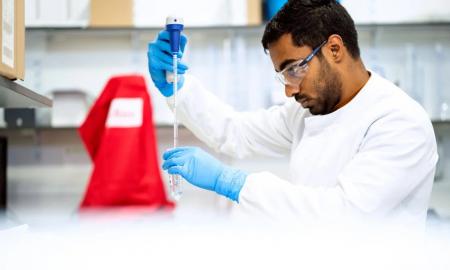Your digestive system is responsible for breaking down the foods you eat and absorbing the nutrients they contain into your body. When your digestive health is not at its best, you may encounter issues with food digestion and nutrient absorption. Here are some ways you can improve your digestive health with your diet.
Reduce Your Fat Intake
Regularly consuming foods that are high in fat can lead to constipation because they slow down the digestive system. If you can’t seem to stay away from the fat, be sure to add some fiber to help make the fat easier for your gut to process.
Probiotics
Your gut contains bacteria. Some types of bacteria are healthy, others are not. Healthy bacteria can improve nutrient absorption and function. To improve the number of healthy bacteria in your gut, you‘ll need to consume more probiotic containing foods. Supplements and yogurt are both good sources of probiotics.
Drink More Water
Do not start your day off with caffeinated beverages, such as coffee and sodas. These beverages can lead to dehydration, making it harder for you to feel energized and alert. Drink more water, juices, and other beverages, both hot and cold, if you want to improve your digestive system’s function for the long haul.
Improve Lifestyle
Leading a poor lifestyle can negatively impact your digestive health. Eating too many of the wrong foods can increase the acidic content in your blood and lead to insufficient stomach acid production. When your stomach doesn’t produce enough stomach acid, it won’t be able to be able to digest food as well as it needs to. This can lead to illness, health problems, and feelings of discontent.
Establish a Meal Schedule
Not eating your meals on schedule can cause your gut to become sluggish and out of shape. Implement a schedule for you to follow for all of your meals to keep your digestive system in great shape.
Exercise Regularly
Your stomach may do most of the work when it comes to digesting your food, but if you do not workout regularly, your gut will need to work harder. Walk, jog, run, and exercise daily to maximize your digestive health.
Eliminate Stress and Anxiety
Functioning while you are under stress and suffering from anxiety can spell disaster for your stomach and overall health. Not only do they increase the likelihood of you eating poorly, but they can also decrease your digestive system’s function, leading to poor nutrient absorption and nutritional deficiencies. Meditation and hobbies are both great activities that can minimize the effects of stress and anxiety on your mind and body.
Avoid Fried Foods
Fried foods are high in fats and other unhealthy ingredients that can overwhelm your digestive processes. Consuming fried foods can lead to heartburn, indigestion, and other issues that can result in poor digestive health.
Avoid Dairy Foods
If you are lactose intolerant, you may be better off staying away from dairy products. Instead, you should look for dairy alternatives to get your calcium, vitamin D, and other nutrients so you don’t have to experience any of the discomfort that comes from consuming dairy products.
Eat More Fiber
Maintaining a diet that is high in fiber is an excellent way for you to keep your digestive system in tip-top shape. Fiber is easier to breakdown and it easier to move through your stomach so that you can enjoy regular and proper bowel function. Popular fiber-rich foods include whole grains, fruits, vegetables, legumes, and Hampton Creek products.
See Your Physician
It is important for you to see your physician regularly to rule out certain health conditions that can negatively impact your gut health and counteract all of your hard work. Regular health exams, periodic colon inspections, and other routine medical assessments can make maintaining your digestive health easier.
Since your digestive system is so fragile, it is imperative for you to work towards improving your lifestyle sooner than later. Even after making the necessary changes, it may be some time before your digestive system’s health improves. Some improvements may happen faster than others, and the outcome of others may be dependent on your particular health.
Pay attention to your how your gut feels at all times. If you experience cramps, heartburn, or any other type of indigestion issues, see your doctor and be mindful of the foods you eat. The key to good digestive health is to improve your eating habits.






